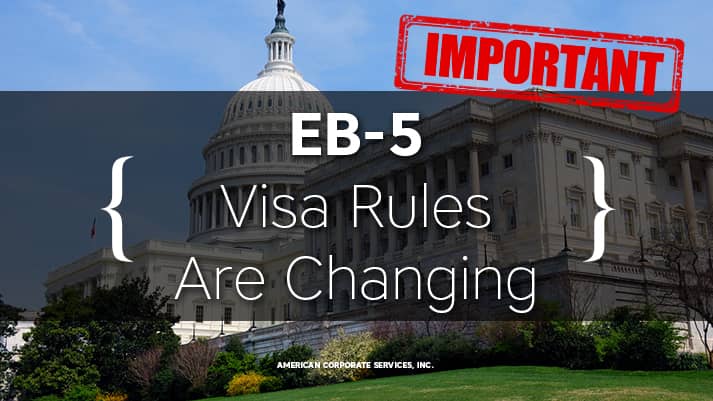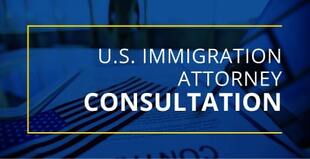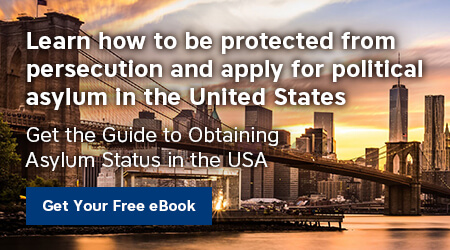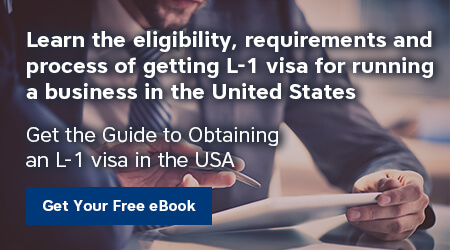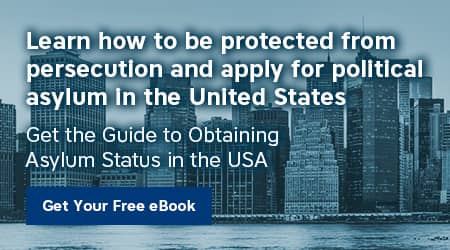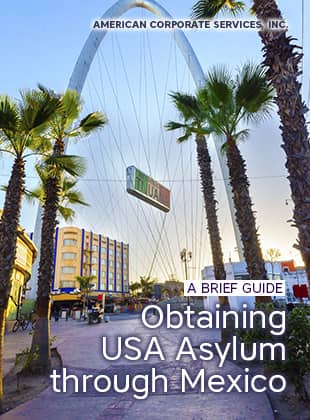Discussions and speculation about how the United States Congress might make changes to the popular EB-5 Investment Immigration Visa program have captured headlines for several years.
What has happened?
The USCIS had filed its proposed changes to the EB-5 Visa program with the Office of Management and Budget’s (OMB) Office of Information and Regulatory Affairs (OIRA) initially. The draft of the proposed changes was published in the Federal Register in January 2017 to await congressional review.
When the Congress and the White House began to vigorously debate how to deal with the problems of illegal immigration and the escalating border crisis, any attempt to “modernize” the EB-5 program retreated into the shadows. If the change were unable to be enacted through legislation, it became clear that modifying rules within the bureaucratic infrastructure of the Department of Homeland Security (DHS) was the only way to effect change.
Congress’ failure to act prompted the USCIS to submit its own EB-5 Modernization Regulation to the OMB for review and approval in February 2019. On June 27, 2019, the OMB approved and returned the regulations to the USCIS with “substantial changes.”
What happens now?
As soon as the USCIS publishes the approved regulations in the Federal Register, the changes will be effective. Other than business as usual in Washington and the Fourth of July holiday, we know of nothing that would impede the USCIS from publishing the regulations immediately.
What happens then?
The law is a bit fuzzy about when the regulations would be enforceable. A grace period typically follows the formal announcement of changes. That grace period is usually 30 days. In some complex cases, the period may be extended for an additional 30 to 60 days. Based on that information, which is as substantive as we have at the moment, all new EB-5 Visa rules could be in force as early as August 5, 2019.
What rules will change?
Until we can see the approved regulations, we are unable to speak to the details of each change. However, we do know the proposals in the draft regulation submitted to the OMB in February.
- The minimum investment amounts will increase. We just don’t know by how much. The proposal recommended raising the minimum investment in a Targeted Employment Area (TEA) from $500,000 to $1.35 million. The proposed increase for direct investment outside of a TEA was an increase from $1 million to $1.8 million. This will have the most significant impact on investors.
- Designation and management of TEAs will change. Currently, TEAs are directed by individual state economic development agencies. The February proposal suggests granting that authority to the DHS. A likely outcome is that DHS will insist that TEAs consist of current census tracts or existing contiguous tracts, where the unemployment rate for the entire TEA is more than 150% of the national average. This will have the most significant impact on urban investment projects.
- Other less significant items. Other changes may include broadening the scope of what “new commercial enterprise” means, requiring separate I-829 petitions for investor spouses and children under age 18, and several minor changes that would have little or no impact on investors.
What should we do?
We strongly urge potential investors to initiate and complete filing without delay. Although petitions in progress are typically excluded from newly introduced changes, we believe that making that assumption could prove to be a major mistake.
What is the bottom line?
FILE NOW. Stop thinking about it. Do it. Failure to act could cost investors hundreds of thousands of dollars of unnecessary expense.
CONTACT US IMMEDIATELY. Regulatory changes are always accompanied by some amounts of confusion and misinterpretation. If there were ever a time when EB-5 investors needed the legal counsel of experienced Immigration Attorneys, it is now.
WATCH FOR OUR UPDATES AS THEY BECOME AVAILABLE.
Immigration Attorneys at ACS Inc. Firm, and our entire staff are prepared to answer your questions about the EB-5 Visa program and show you how we can help make your immigration dream come true.

